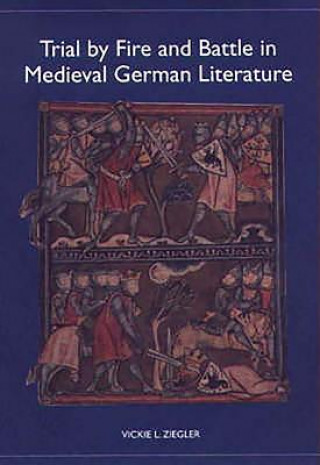
Code: 12312713
Trial by Fire and Battle in Medieval German Literature
by Vickie Ziegler
Medieval judicial ordeals, especially trial by fire or battle, conjure up vivid pictures in the modern imagination. Searing iron and clashing swords shape popular perceptions of the Middle Ages, yet leave the reader without a cont ... more
- Language:
 English
English - Binding: Hardback
- Number of pages: 248
Publisher: Boydell & Brewer Ltd, 2004
- More about this

136.25 €
Availability:
50/50 We think title might be available. Upon your order we will do our best to get it within 6 weeks.
We think title might be available. Upon your order we will do our best to get it within 6 weeks.We search the world
You might also like
-

Scattered Seasons
10.76 € -24 % -

Fusion with Bistro 430
20.52 € -2 % -

We'll Never Tell Them
18.41 € -4 % -

Veux-Tu Bien 'Couter?
12.27 € -
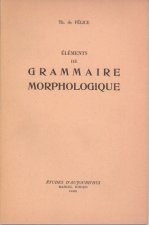
Elements de Grammaire Morphologique
20.02 € -

Work-Life-Balance in Professional Service Firms
89.96 €
Give this book as a present today
- Order book and choose Gift Order.
- We will send you book gift voucher at once. You can give it out to anyone.
- Book will be send to donee, nothing more to care about.
Availability alert
Enter your e-mail address and once book will be available,
we will send you a message. It's that simple.
More about Trial by Fire and Battle in Medieval German Literature
You get 343 loyalty points
 Book synopsis
Book synopsis
Medieval judicial ordeals, especially trial by fire or battle, conjure up vivid pictures in the modern imagination. Searing iron and clashing swords shape popular perceptions of the Middle Ages, yet leave the reader without a context in which to understand this most dramatic and most drastic of medieval judicial remedies. This book brings together literary texts that provide some of the most vivid and detailed accounts of the medieval ordeal. It analyzes the dramatic treason trials in late medieval Charlemagne epics, where the great emperor presides over the judicial combat that convicts his nephew Roland's killer. The two epics chosen -- Stricker's Karl der Groe and the Karlmeinet -- treat trial by battle as the living legal reality it was in those times, yet display very different attitudes toward feud and punishment in their respective (13th- and 14th-century) societies. Gottfried's Tristan contains an ordeal by battle, of which the author approves, and an ordeal by fire, of which he does not, reflecting a common position of the intelligentsia around 1210, the probable time of writing. Well after the condemnation of ordeals by the Fourth Lateran Council, the Kunigunde legend preserves the ordeal by fire in a sort of hagiographic amber, much as it was portrayed in the mid-12th-century Richardis legend, while Stricker's short secular burlesque "The Hot Iron," written in the mid 13th century, makes sport of this formerly serious legal proceeding, reflecting the almost immediate abandonment of trial by fire as a legal proof after the council's decision. The study brings extensive background material in legal and cultural history to bear on literary texts, enabling both medievalists andgeneral readers to reach a broader and more informed understanding of the function of the ordeal and related legal issues in the texts as well as in the larger society for whom these works were written.Vickie L. Ziegler is professor of German and Director of the Center for M
 Book details
Book details
136.25 €
- Full title: Trial by Fire and Battle in Medieval German Literature
- Author: Vickie Ziegler
- Language:
 English
English - Binding: Hardback
- Number of pages: 248
- EAN: 9781571132918
- ISBN: 1571132910
- ID: 12312713
- Publisher: Boydell & Brewer Ltd
- Weight: 522 g
- Dimensions: 236 × 163 × 24 mm
- Date of publishing: 28. June 2004
Trending among others
-

Berserk Deluxe Volume 1
47.99 € -28 % -

Cry Baby Coloring Book
9.85 € -12 % -

Berserk Deluxe Volume 2
52.22 € -

Haunting Adeline
30.78 € -

Hunting Adeline
31.79 € -
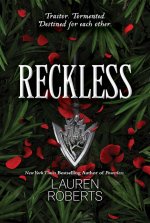
Reckless
10.25 € -20 % -

Powerless
11.97 € -6 % -

The Official Stardew Valley Cookbook
21.83 € -24 % -

Berserk Deluxe Volume 4
46.58 € -7 % -

White Nights
3.51 € -

Berserk Deluxe Volume 3
48.90 € -2 % -

Berserk Deluxe Volume 5
50.51 € -

Gravity Falls Journal 3
18.31 € -13 % -

BALLAD OF SWORD & WINE QIANG JIN JIU V01
17 € -18 % -

Atomic Habits
16.19 € -29 % -

Iron Flame
16.19 € -24 % -

Chainsaw Man, Vol. 15
10.36 € -19 % -

No Longer Human
13.48 € -16 % -

JUJUTSU KAISEN V22
9.55 € -28 % -

The 48 Laws of Power
24.55 € -8 % -

Surrounded by Idiots
10.76 € -9 % -

Twisted Lies
9.75 € -17 % -

Berserk Deluxe Volume 6
51.11 € -
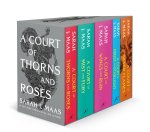
Court of Thorns and Roses Paperback Box Set (5 books)
50.11 € -19 % -

Everything I Know About Love
10.36 € -29 % -
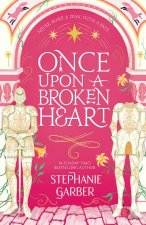
Once Upon A Broken Heart
9.85 € -23 % -

Twisted Games
9.75 € -24 % -

Heaven Official's Blessing: Tian Guan Ci Fu (Novel) Vol. 1
18.10 € -8 % -
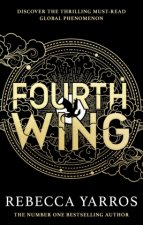
Fourth Wing
10.25 € -20 % -

Twisted Love
9.75 € -24 % -

A Little Life
17.50 € -

Dungeons & Dragons Essentials Kit (D&d Boxed Set)
22.73 € -12 % -
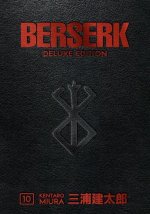
Berserk Deluxe Volume 10
58.76 € -
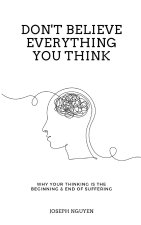
Don't Believe Everything You Think
12.87 € -20 % -

The Courage To Be Disliked
11.06 € -6 % -

Harry Potter and the Prisoner of Azkaban (Minalima Edition)
30.78 € -23 % -

Court of Thorns and Roses
9.25 € -21 % -

Bungo Stray Dogs, Vol. 8 (light novel)
16.59 € -2 % -
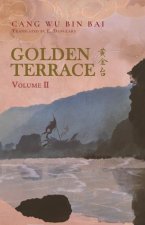
Golden Terrace: Volume 2
13.98 € -33 % -
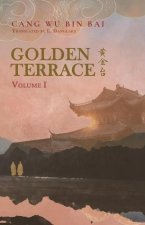
Golden Terrace: Volume 1
15.89 € -24 % -

Bridgerton: The Duke and I
10.15 € -29 % -

Howl's Moving Castle
8.04 € -26 % -

Heaven Official's Blessing: Tian Guan Ci Fu (Novel) Vol. 5
17.40 € -12 % -

Twisted Hate
10.15 € -20 % -
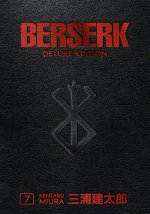
Berserk Deluxe Volume 7
48.09 € -4 % -

Court of Mist and Fury
9.95 € -16 % -

Percy Jackson and the Olympians 5 Book Paperback Boxed Set
36.42 € -19 % -
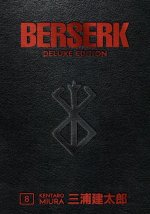
Berserk Deluxe Volume 8
51.21 € -

The Husky and His White Cat Shizun: Erha He Ta de Bai Mao Shizun (Novel) Vol. 5
20.22 € -1 %
Collection points Bratislava a 2642 dalších
Copyright ©2008-24 najlacnejsie-knihy.sk All rights reservedPrivacyCookies


 15549 collection points
15549 collection points Delivery 2.99 €
Delivery 2.99 € 02/210 210 99 (8-15.30h)
02/210 210 99 (8-15.30h)